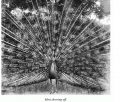Pakistan Air Force too radicalised, says Poreg

The heat and dust over the Pakistani-American Times Square bomber Faisal Shahzad has completely side tracked a little known fact about the presence of extremist elements within Pakistan Air Force, according to Policy Research Group (Poreg). Shahzad’s father is a senior Pakistan Air Force officer now in retirement.
A commentary by Poreg posted on its web site (www.poreg.org) said: “Poreg Pakistan Air Force (PAF) first came under the global scanner immediately after the 9/11 attacks. Investigations revealed that one of the room-mates of Mohammad Atta, the main hijacker, was a PAF pilot, Squadron Leader Atif Ahmed bin Mansoor. He was a member of Hamburg Cell and stayed with Atta in a room at the Islamic study group at Technical University of Hamburg-Harburg in 1999. He returned to Pakistan after his brother, another PAF pilot, died when his spy plane was shot down by India in August 1999. Both the PAF pilot and Atta were in fact awarded by the university president for outstanding performance in the international master’s course. Atif was sponsored by Pakistan Ministry for Science and Technology.
According to Poreg, the involvement of PAF officials in acts of terrorism was brought to light with the the twin assassination attempts on President Pervez Musharraf. Investigations were carried out by a committee headed by present Army chief, General Ashfaq Kayani. At least 57 PAF officials were found directly involved with terrorist groups. Some of them were involved in the conspiracy to assassinate Musharraf. 26 officers were courtmartialled and awarded various prison terms while six were given death sentence for their involvement in terrorist activities.
Poreg also listed a third instance when the link between terrorist groups and PAF was discovered. It was when CIA interrogated al Qaida operational commander Abu Zubaydah who was captured in a LeT safe-house in Peshawar. Zubaydah said one of the contact persons of al Qaida chief Osama bin Laden was Pakistan Air Force chief Mushaf Ali Mir. He said Mir met bin Laden in 1996 where he agreed to help the terrorist leader in supplying arms and other materials.
Poreg commentary claims that the PAF- terror link began during the Afghan jihad days when Pakistan Army and ISI used transport planes supplied by the US to ferry ‘Mujahideen’ recruits and weapons to the front line of the war against Soviet occupation of Afghanistan. Many PAF pilots took to smuggling drugs on board these planes as they fetched a princely sum in the international market. Some PAF officers ran smuggling rings to line up their pockets and fund the army’s terrorist campaign in India and elsewhere.
In 1997, US intelligence agencies tracked down a major drug smuggling racket involving PAF officers. The case led to the arrest of an officer, Farooq Ahmed Khan. He was part of the ISI network of drug smugglers which extended from New York to Peshawar, and raised funds to sponsor terrorist groups against India. In Dec 1997, Khan was found to be a conduit of a drug trafficking network run from a Karachi hotel by another PAF officer, who was arrested.
“The Shahzad case raises fears about the air force-crime-terror nexus in Pakistan at a time when the army is substantially radicalized and pro-actively supports terrorist and extremist groups on ideological and geo-strategic considerations”, the Poreg study observes.
-
Book Shelf
-
 Book Review
DESTINY OF A DYSFUNCTIONAL NUCLEAR STATE
Book Review
DESTINY OF A DYSFUNCTIONAL NUCLEAR STATE
- Book ReviewChina FO Presser Where is the fountainhead of jihad?
- Book ReviewNews Pak Syndrome bedevils Indo-Bangla ties
- Book Review Understanding Vedic Equality….: Book Review
- Book Review Buddhism Made Easy: Book Review
- Book ReviewNews Elegant Summary Of Krishnamurti’s teachings
- Book Review Review: Perspectives: The Timeless Way of Wisdom
- Book ReviewNews Rituals too a world of Rhythm
- Book Review Marx After Marxism
- Book Review John Updike’s Terrorist – a review
-
-
Recent Top Post
-
 CommentariesTop Story
India’s Migration Dilemma
CommentariesTop Story
India’s Migration Dilemma
-
 Commentaries
Crowd Management Blues
Commentaries
Crowd Management Blues
-
 Meher Baba SpeaksNews
Meher Baba Loved Them Too…
Meher Baba SpeaksNews
Meher Baba Loved Them Too…
- Commentaries Record Pentagon spending bill and America’s hidden nuclear rearmament
-
 CommentariesNews
Ides of trade between India and Pakistan
CommentariesNews
Ides of trade between India and Pakistan
-
 Commentaries
How sustainable is the rhetoric of India-China Bhai-Bhai
Commentaries
How sustainable is the rhetoric of India-China Bhai-Bhai
-
 CommentariesTop Story
New Set of Diplomatic Strains with Canada
CommentariesTop Story
New Set of Diplomatic Strains with Canada
-
 News
Ratan Tata’s Legacy
News
Ratan Tata’s Legacy
-
 Commentaries
India’s Strategic Push on the World Stage
Commentaries
India’s Strategic Push on the World Stage
- Commentaries Veils of Resistance
-
AdSense code















